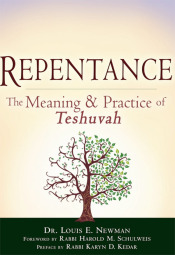Just Do It: Living an Ethical Jewish Life
A scholar-in-residence weekend with
Professor Louis Newman
Specific titles and topics can be tailored to the needs and interests of the congregation. Click here to contact Dr. Newman regarding availability.
We rightly consider ethics to be at the heart of our Jewish tradition. But what does living an ethical life require of us and what distinctive insights does our tradition offer us about how to approach moral problems? This series of sessions will invite us to delve more deeply into Jewish ethics, and especially to consider the ways in which traditional teachings might challenge widely held views of what is right and good.
Friday night
“Living an Ethical Life: What Does God Have To Do With It?”
Do we need to believe in God to live ethically? How can our relationship to God inform our relationships to one another? For many modern Jews who think of ethics as a largely secular enterprise, this session challenges us to think of the ways in which our religious tradition might shape our moral lives and offers an introduction to the basics of Jewish ethics.
Shabbat morning
“Blue Scroll or Red Scroll. . .Is Torah Liberal or Conservative?”
We live in a time of tremendous partisanship and rancor between people at opposite ends of the political spectrum. In a country divided between “red” and “blue,” Torah may yet offer us a third way. This session invites us to explore the ways in which both political perspectives reflect values and perspectives rooted in Judaism.
- or -
Text study
We will explore Jewish texts relevant to a contemporary moral issues, such as abortion, end-of-life care or genetic engineering (or other issues of particular concern to your congregation).
Sunday morning
“Being a Mensch: It’s Harder Than You Think”
What are the challenges we face in living ethically day to day? What does Judaism teach us about how to overcome those challenges and become the people we were meant to be? If we really consider what it means to be a “mensch,” we discover that it is composed of several important virtues, and also that cultivating those virtues is a life-long process.
- or -
“Being Responsible for Others: If Not You, Then Who?”
What should we do when we see others in our community behaving badly? What are the risks of “whistle-blowing?” What are the risks of failing to do so? Judaism has much to teach us about our responsibilities to and for one another. When we take those responsibilities seriously, it can radically affect the way we relate to our co-workers, neighbors and others in our society.
